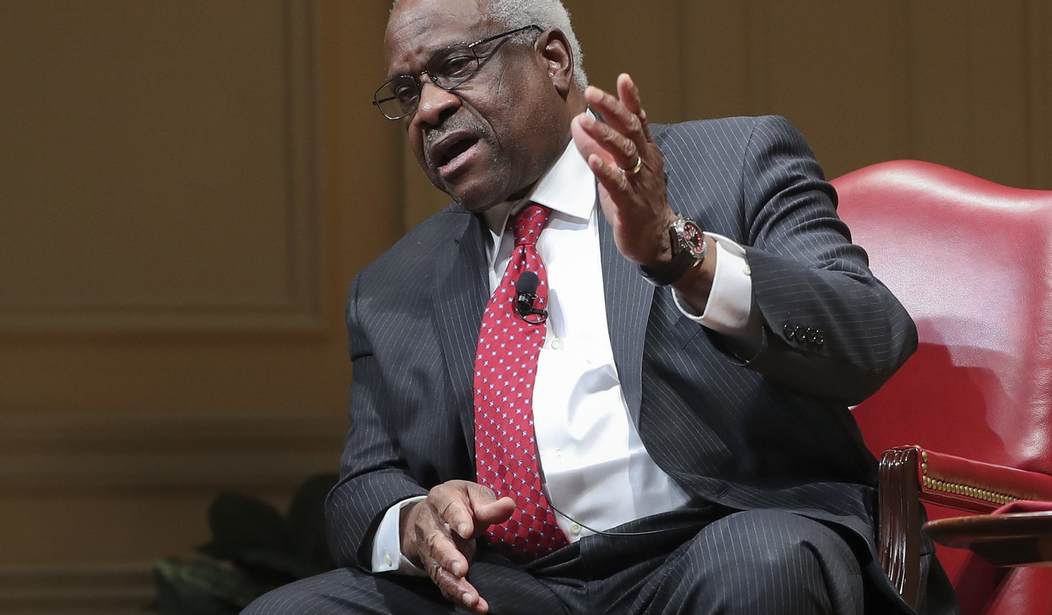The Left is a big club, and you’re not in it. Leftists play a game that works this way: the Southern Poverty Law Center (SPLC), one of their primary attack machines, publishes a report purporting to demonstrate that some conservative group or other is a “hate group.” This allegedly objective study is generally a tissue of innuendo, misrepresentations, and outright lies. But nevertheless, leading corporations then cite the SPLC’s study as justification for barring the abhorrent hate group from their various services.
The supposedly objective news media solemnly repeats that the group in question has been designated by the SPLC as a “hate group,” as if this were akin to a cancer diagnosis from a sober, disinterested medical professional. But it’s more like a leprosy diagnosis: after all this, the “hate group” is duly ostracized and marginalized. This game has worked for years, with cowardly conservatives playing along and accepting the ostracism of some foremost voices of dissent from the Leftist agenda. But Justice Clarence Thomas on Monday declared that it is high time that this sinister game comes to an end.
Thomas dissented from the Court’s denial of a petition for a writ of certiorari in the case of Coral Ridge Ministries Media Inc. v. Southern Poverty Law Center, and it’s a shame that his remarks are in a dissenting opinion on a case the Court declined to hear rather than a majority opinion striking against the SPLC, as the Leftist beast will never be vanquished as long as the SPLC’s wholly unjustified status as an impartial arbiter of what does and does not constitute “hate” that is beyond the pale of acceptable discourse remains unchallenged.
Coral Ridge Ministries Media tried to challenge it. As Thomas notes in his dissent, Coral Ridge is “a Christian nonprofit dedicated to spreading the ‘Gospel of Jesus Christ’ and ‘a biblically informed view of the world, using all available media.’” That is not illegal in the United States, but Coral Ridge’s efforts were significantly hampered when the SPLC designated it an “anti-LGBT hate group” for holding what Thomas termed “biblical views concerning human sexuality and marriage.” After this, the ostracism began.
Through its AmazonSmile program, Amazon allows its customers to contribute to their favorite charities with their purchases; Coral Ridge, however, despite being an eligible charity as far as the U.S. government is concerned, as it is a registered 501(c)(3) charitable organization, was barred from participating in AmazonSmile, on the grounds that the SPLC had designated it a “hate group.”
Coral Ridge sued the SPLC for defamation, maintaining that it “has nothing but love for people who engage in homosexual conduct” and “has never attacked or maligned anyone on the basis of engaging in homosexual conduct.” Coral Ridge asserted that the SPLC knew that it wasn’t really a “hate group” at all but tarred it as one nonetheless in order to “destroy the Ministry” by “dissuad[ing] people and organizations from donating” to it.
Related: WATCH: Josh Hawley Torches Biden’s Radical SPLC Judicial Nominee
With breathtaking cynicism, the relentlessly anti-free speech SPLC based its defense on the First Amendment, and Coral Ridge’s complaint was dismissed on free speech grounds. Thomas explained: “Because Coral Ridge conceded that it was a ‘public figure,’ the court observed that Coral Ridge had to prove three elements to rebut SPLC’s First Amendment defense: the ‘hate group’ designation had to be (1) provably false, (2) actually false, and (3) made with ‘actual malice.’” This makes the SPLC’s defamation virtually immune to challenge: “The court concluded that SPLC’s ‘hate group’ designation was not provably false because ‘“hate group” has a highly debatable and ambiguous meaning.’”
What’s more, the court said that Coral Ridge hadn’t proved that the SPLC acted with “actual malice,” as is required by the 1964 case New York Times Co. v. Sullivan. Thomas explained that in a defamation case, while an individual need prove only that the defamation has subjected him to “hatred, contempt, or ridicule,” a “public figure” must prove “actual malice,” that is, that the defamatory statement was made “with knowledge that it was false or with reckless disregard of whether it was false or not.”
Thomas said rightly that this standard should be reconsidered, as it allows for all manner of defamation, including but by no means limited to what is published by the SPLC. The Justice pointed out that “this case is one of many showing how New York Times and its progeny have allowed media organizations and interest groups ‘to cast false aspersions on public figures with near impunity.’” Indeed. But the SPLC has hundreds of millions of dollars, and in my personal experience, lawyers are afraid to take it on.
Yet as Thomas notes, “SPLC’s ‘hate group’ designation lumped Coral Ridge’s Christian ministry with groups like the Ku Klux Klan and Neo-Nazis. It placed Coral Ridge on an interactive, online ‘Hate Map’ and caused Coral Ridge concrete financial injury by excluding it from the AmazonSmile donation program.” Nor is Coral Ridge alone. But “nonetheless, unable to satisfy the ‘almost impossible’ actual-malice standard this Court has imposed, Coral Ridge could not hold SPLC to account for what it maintains is a blatant falsehood.”
Thomas is right. The Supreme Court “should not ‘insulate those who perpetrate lies from traditional remedies like libel suits.’” Unless and until New York Times Co. v. Sullivan and the SPLC are taken down, conservatives will increasingly be second-class citizens in the United States.










Join the conversation as a VIP Member